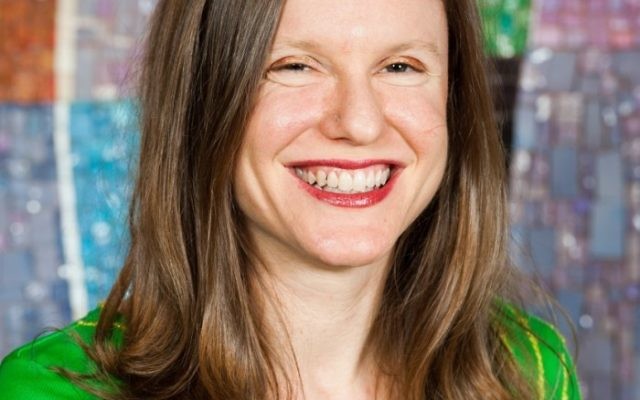After Orlando, Feeling Unsafe at Home
Guest Column by Rabbi Malka Packer
My heart sank when she pulled her hand away. My partner and I were walking through the Nashville airport to pick up our rental car when I reached out to touch her. We were on our way to her cousin’s wedding in a rural Southern town.
Raised in a conservative community in the Bible Belt, my partner has a strong, visceral reaction to public displays of affection.
In the airport that day, her gut instincts insisted that she was not safe. Not here. I wanted to hold her tight and assure her that we were OK in this setting full of security and passers-by. But for her, holding my hand felt dangerous.
I grew up in upstate New York. And while I didn’t have any openly gay friends, family or even acquaintances as a child, I never got the message that being gay was unsafe, evil, a reason to go to hell. It wasn’t discussed, but when, with the flip of her hand, my grandmother lovingly called her hairdresser a fagelah (gay man in Yiddish), she let me know how she felt.
“That’s so gay” was a popular phrase used by my fellow preteens to describe something they didn’t like. It wasn’t exactly good to be gay in Niskayuna, N.Y., but it wasn’t bad, either.
It wasn’t until we moved to Atlanta last year that I started to understand my partner’s inherent fears. While Atlanta is a progressive city in the middle of a conservative state (the blueberry inside a strawberry), we still reside in the Dirty South, the Bible Belt, the place where homophobic and transphobic legislative bills about gender and sexuality are prominent.
Over the past year, both my partner and I have changed our attitudes around being openly queer in our city. As she has become more comfortable, she tends to be the one to reach for my hand when strolling down the BeltLine bike path, and she plants a sweet kiss on my cheek while waiting in line at Home Depot.
While this makes me so happy, I’ve become more fearful myself. In fact, I was the one who felt nervous when we bought our home last month. I wondered what our new neighbors would think of us. I wondered if the location would be a safe place for a queer couple to live.
“How can we know?” I asked myself. When a neighbor came by to introduce herself, I didn’t know if I should call my beloved my partner. My roommate? My friend?
When I learned the news of the shooting in the Pulse nightclub in Orlando, Fla., on June 12, I went from sad to heartbroken to scared. Honestly, I’m still scared today. What will be the backlash? Am I truly safe in Atlanta? Do we need to be more careful in public spaces?
When we go camping in the North Georgia mountains, should we act like friends around fellow hikers? Do we need to avoid nightclubs and large queer gatherings? If the largest mass shooting in the United States took place in the biggest gay bar in Orlando, are we safe anywhere?
As a queer rabbi, as an activist, I try to calm myself, reassure myself. I tell myself that the answer is action. I tell myself that the world is getting better, safer. I tell myself that laws are changing, if slowly. And I will continue to march and shout and demand change. I will sign petitions, protest at the Capitol and contact my senators. I will do all I can to fight.
But right now, for me, the most important form of action isn’t fighting. It’s something smaller, more personal. The best protest I know is simply to reach for my beloved’s hand as we walk down the streets of Atlanta. To say to my neighbors, to the South and to the world, “Here we are, living, despite everything. Isn’t it beautiful?”
To say to everyone, “Love is love.”
Rabbi Malka Packer is the director of InterfaithFamily/Atlanta.





comments